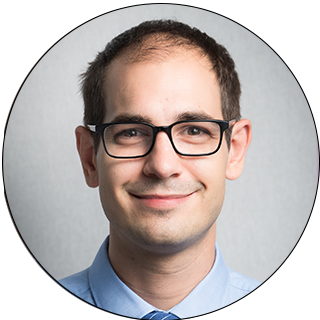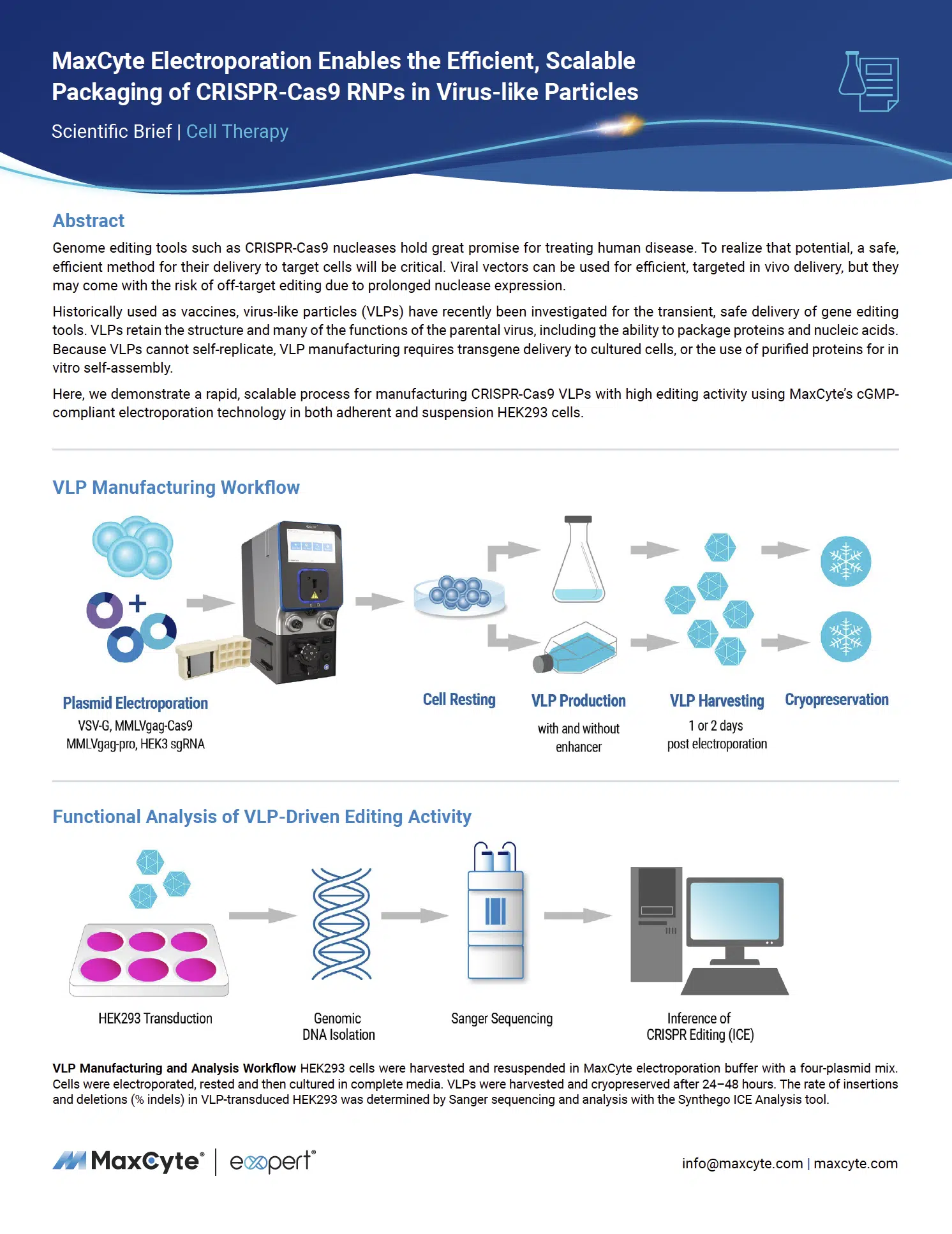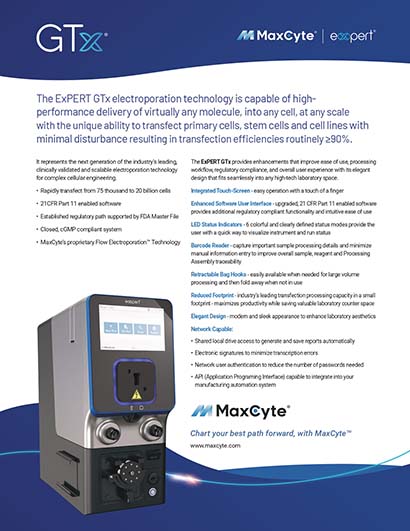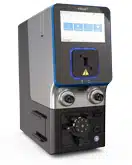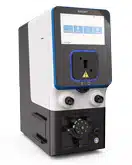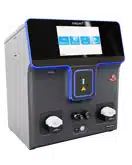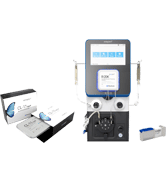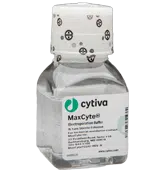Webinar
Hosted by CRISPR Journal
November 19, 2024
Advances in gene editing and synthetic biology offer great potential for improving the safety and functionality of engineered cellular medicines.
Assistant Professor (Incoming)
Department of Pathology
Stanford University
Abstract: Effective cellular therapies for solid tumors are challenging to develop. Advances in gene editing and synthetic biology offer promise for safer, more effective treatments. Traditional methods are slow, but pooled knock-in screening has sped up the discovery of new immune cell modifications. In a webinar by The CRISPR Journal, Dr. Theo Roth from Stanford University will discuss this platform, highlighting its non-viral genome targeting and ability to engineer diverse human immune cells. This scalable method links T-cell genetic changes with single-cell phenotypes, identifying promising cell therapy targets for clinical development.
Watch the presentation to learn about:
- How synthetic genes can be integrated specifically at endogenous genes to engineer T cell specificity
- The benefits of pooled screening systems
- How pooled genetic perturbations can be combined with high dimensional, single-cell phenotypes
Watch presentation on demand
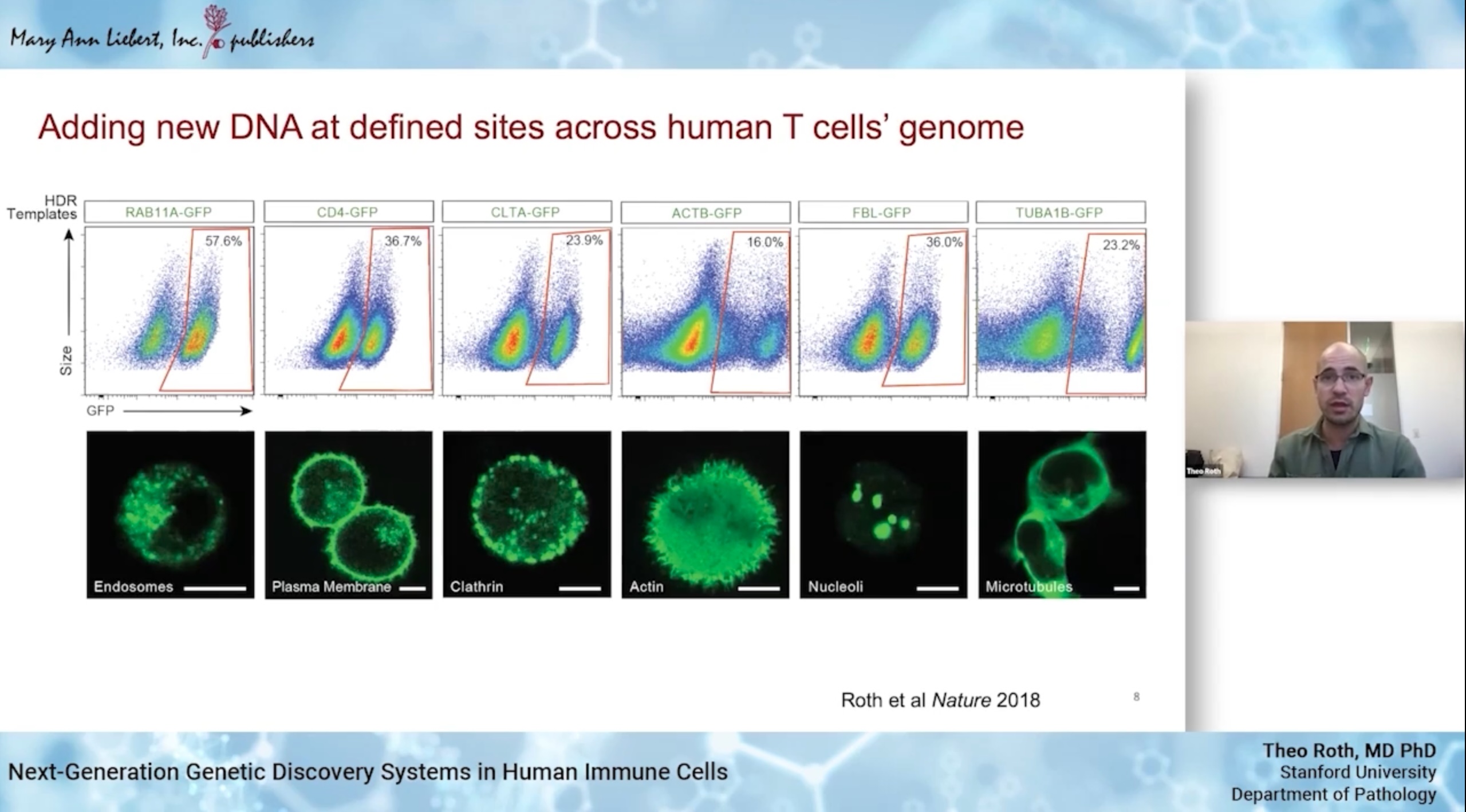
Theo Roth, MD PhD
Assistant Professor (Incoming), Department of Pathology, Stanford University
Theo completed his MD and PhD training at the University of California, San Francisco and his clinical residency in Pathology at Stanford University. He is an incoming Assistant Professor in the Department of Pathology at Stanford University and holds a Burroughs Welcome Fund Career Award for Medical Scientist in addition to support from NIH-NCI and the Parker Institute for Cancer Immunotherapy. His research focuses on the development, application, and translation of scalable technologies for the genetic manipulation of primary human cells and complex in vivo tissue environments. Theo’s past work on non-viral genome targeting and pooled knockin screening in human T cells have led to multiple active clinical trials in academics and industry, and he was the founding CSO and scientific co-founder of Arsenal Biosciences.
Have more questions?
Send your question to one of our cell engineering experts.
